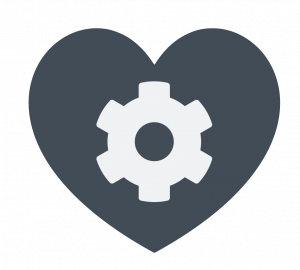Commonscloud.coop is made with free software. We install, integrate and manage different programs with free licenses, in order to provide services to individual and organisation users. We do this on the basis that if we group together, we can have better services. We do not create dependencies, if someone wants to install the same program on their own server or find someone else to install it for them, they can do it.
Free software is a guarantee of transparency, the code can be audited because it is open. It is also an ecosystem that allows you to develop good tools, identify and fix bugs and improve functionality, without depending on the decisions of a single corporation that controls its development.

The 4 freedoms of free software
We endorse the definition of book software maintained by the *Free Software *Foundation (*FSF) (proposed by Richard *Stallman, 1984) and which has given rise to a broader definition of freedoms for any cultural work freedomdefined.org.
A software is “free” when the following “freedoms” are guaranteed:
- Freedom 0: to run the program, for any purpose.
- Freedom 1: to study how the program works, and change it so it does your computing as you wish. Access to the source code is a necessary condition to exercise this freedom.
- Freedom 2: to redistribute copies in order to help other people.
- Freedom 3: to improve the programme and make these improvements public for everyone, so that the whole community benefits. Access to the source code is a necessary condition for exercising this freedom.
We also use the acronym *FLOSS (from *Free/*Libre *Open *Source Software, from the English terms with the word “*libre” in Spanish to disambiguate the word “*free” in English) which links the definition and vision of free software from the *FSF with the definition and vision of open source software from *The *Open *Source *Initiative (*OSI), combining the two souls of the movement. That’s why you’ll find the phrase “made with *FLOSS” in the explanation of each service.
Free software and technological autonomy
Technology is not neutral. How we develop it, how we use it, how we distribute it always has an effect on society. In recent decades, free software has become a strategic resource that enables technological and social autonomy. Unlike proprietary software, it can be used, copied, studied, modified and redistributed freely, which is why we consider it an open digital commons. Free software, and the licences for its distribution and use (which guarantee the 4 freedoms), allow the freedom to learn, to teach and to cooperate in the construction of resources and knowledge that benefit society as a whole and enable transparency of information processing. In combination with open standards, free software makes cooperation possible by creating playing fields in which any person, group of people or organisation can participate and innovate free of software dependencies, formats and specifications. In addition, open source technologies are more efficient, since they favour interoperability, *modularity and code reuse.
Many state, regional and local governments have set the use and development of these free technologies as a strategic objective. The European Commission recognises their value in its Digital Agenda for Europe, as part of its EU2020 strategy. Free and open source software have been fundamental pillars of the European funding programme for FP6 and FP7 projects, and *Horizon 2020 Innovation and Research. Their strategic importance has also been confirmed by the EC’s *Open *Source Observatory and the World Bank’s *InfoDev report.
Cooperatives and solidarity economy organisations, the feminist economy, other transformative economies, as well as local commerce, small and medium-sized enterprises and freelancers and self-employed, are also recognising in free software a key element to empower themselves, to autonomously appropriate the new means of production and to build an economy based on *intercooperation and fair relations between people, without dependence on an oligopoly that can concentrate power and profits in a few hands through their control over technology.
Free software in Commonscloud.coop
Commonscloud.coop currently uses the following free software:
- *LDAP for account integration which is managed from Gent (“People”).
- *Nextcloud and *CollaboraOffice by Office.
- *Zimbra for Mail.
- *Discourse for Agora.
- *BigBlueButton for *Meet.videoconference.
- *Dolibarr as ERP/*CRM Manager.
- *Limesurvey for surveys and forms.
- *Ansible for automating deployments.
We also do some development of our own published on *GitLab.



